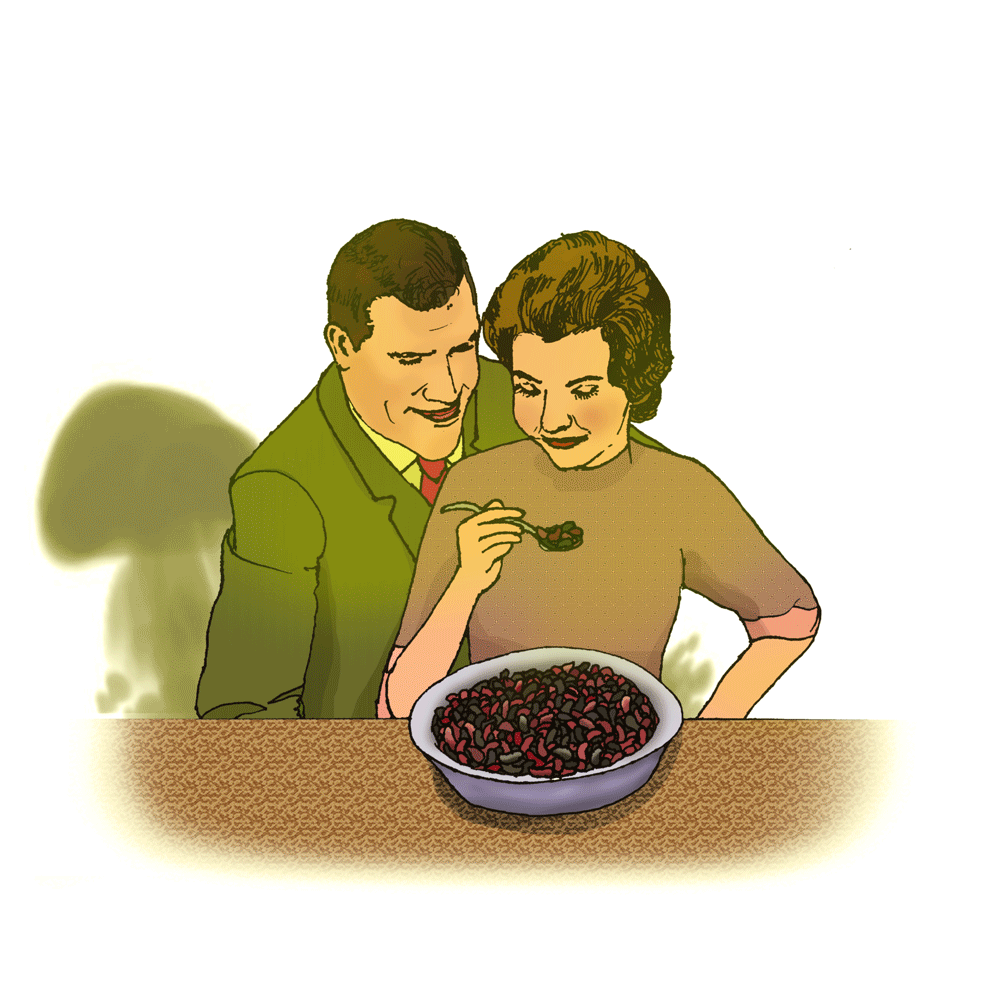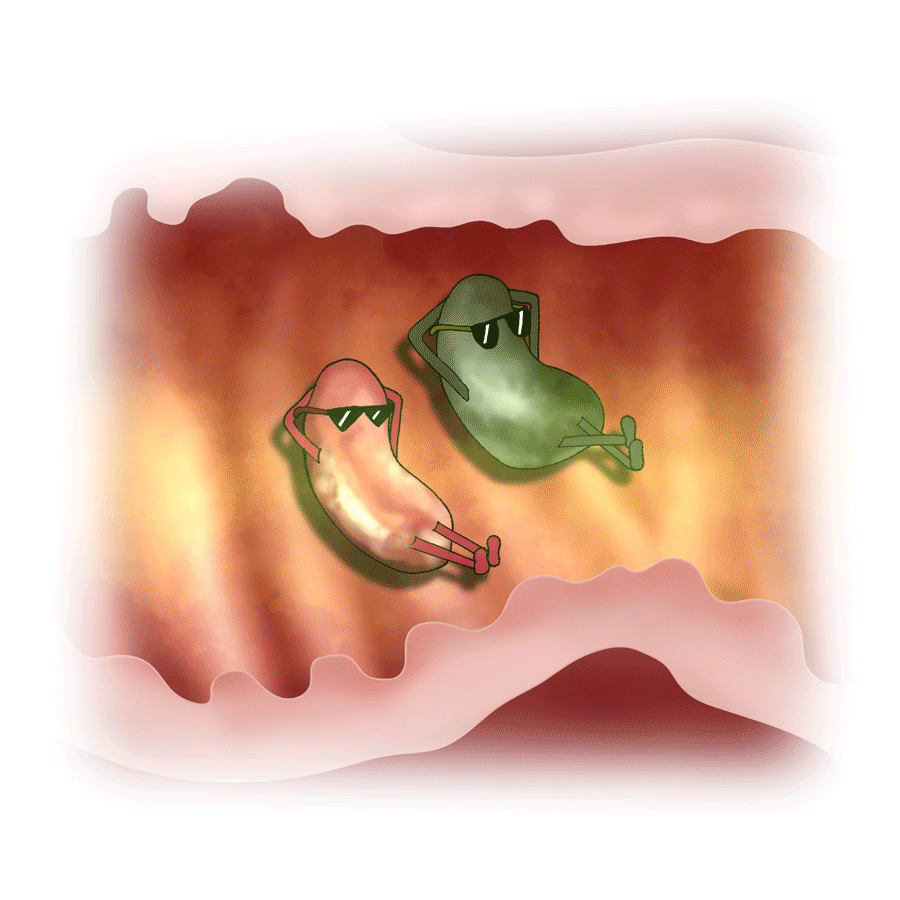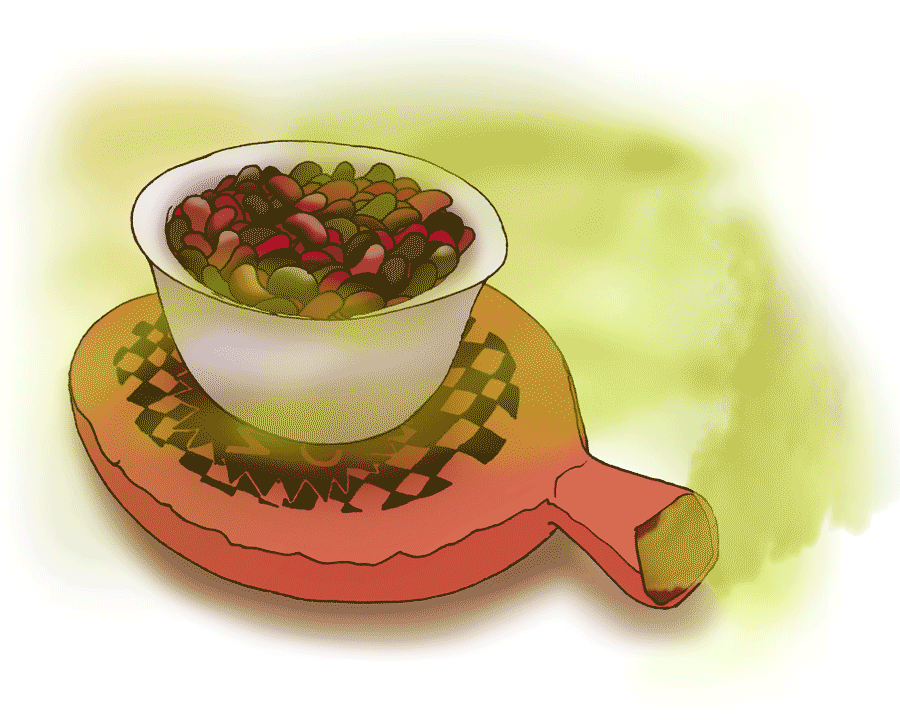
Beans make us fart. So what’s a legume lover to do?
Why do beans make us fart? Easy: because they contain a chain of complex sugars called oligosaccharides that our digestive enzymes can’t break down. Our intestinal bacteria ferment these sugars and, like the pffft that sputters from a jar of kimchi as it’s uncapped, the fermentation process that beans undergo inside our bodies creates a pungent, gusty by-product that makes its way out through our intestinal tracts.
But what are we supposed to do about it? That’s more difficult to answer, especially in the current culinary moment. Over the past few years, voguish elimination diets have vilified beans for the lectins they contain, which the practitioners of these diets say can cause low-grade, chronic inflammation, leading to allergy-like symptoms of redness and swelling, as well as autoimmune diseases, weight gain, and much more.
But beans are also assuming more of a starring role on menus across the country. At Tartine Manufactory in San Francisco, for example, a recent lunch centered on an elegant bowl of shelling beans topped with a soft-boiled egg, ricotta salata, and some wispy pea and fava greens. In Brooklyn, the menu at Marlow & Sons features a standalone dish of braised cannellini beans sprinkled with nuggets of crisp bread crumbs and a puddle of aioli. And this April, beans even got the New Yorker treatment.
But while many foods give us gas (oligosaccharides are also present in onions, garlic, savoand artichokes, and dairy is thought to be one of the leading causes of gas), beans continue to fog the popular imagination. For as long as bean farts have been plaguing our postprandial comfort, we’ve been grappling with how we can go about eliminating them.
Herb and spice remedies are abundant in seemingly every cuisine: Epazote, savory, fenugreek, asafoetida, cumin, fennel, ginger, bay leaf, turmeric, and kombu are all thought to be effective. While there aren’t many robust or conclusive scientific studies on their utility—they persist instead in the realm of cultural and generational lore—ginger, fennel, and turmeric have shown a few promising signs.
But you can also take a pill: Beano. A health-food store standby, Beano is an enzyme supplement that you take at the beginning of a meal. It acts as a sort of drum major, guiding the food through your gut with the missing enzyme that makes beans digestible. There’s also Gas-X, an over-the-counter simethicone, or anti-foaming agent, that works by breaking down the bubbles in the gut. After consuming your beans, you can chew a tablet or swallow a pill—it’s a no-guilt dessert, although admittedly a lousy one.
If you’re making beans at home, you can cook the oligosaccharides right out of them, because these complex sugars appear to be water soluble. In her best-selling bean opus, Bean to Bean, Crescent Dragonwagon offers an elaborate, USDA-devised “degassing” method for cooking beans: Using a nine-to-one water-to-bean ratio, soak dried beans overnight, then drain and thoroughly rinse them. Submerge them in another nine-to-one ratio of fresh water and cook, covered, for 30 minutes, then drain and rinse again. Refresh once more with the nine-to-one water proportion and cook one last time, until the beans are tender. You do have to discard the cooking liquid, which many cooks, including me, believe to be one of the best parts of a pot of beans.
But if all this fails, there’s a prevailing belief that if you just eat more beans, your body will adapt, learning over time how digest them without the vaporous wake. Let me say that I eat a lot of beans and they still cause me gas, and this kind of advice reminds me of friends who used to insist that my debilitating cat allergy would subside if I’d just spend more time with cats.
So I asked Sarina Pasricha, a gastroenterologist at the Delaware Center for Digestive Care, if there was any merit to the idea. She couldn’t support it with medical data but said that one could argue that increasing dietary fiber through a high-fiber food like beans would serve to diversify the gut’s bacteria and make its microbiome stronger. “As we increase our good gut bacteria, it is plausible that people will experience less gas and bloating symptoms,” she told me over email.
(I still found it very validating to read, in the preface to Ken Albala’s surprisingly engrossing book Beans: A History, that even after Albala spent a full year eating a myriad of beans, cooked in numerous ways, his flatulence did not waver. “No matter what anyone says,” he writes, “tolerance for the bean and its gaseous effects does not develop over time. You just get used to bloat.”)
While it’s true that all humans are missing the enzyme that makes oligosaccharides digestible, these sugars’ effect seems to vary quite a bit from one person to the next. What I mean is that some people can issue real stink bombs, and I asked Dr. Pasricha how this could be. In such cases, she said, the culprit is not so much the beans but instead likely an intestinal issue that needs addressing: irritable bowel syndrome, constipation, or a “slow colon” that can keep those ferment-y gases inside the body longer.
So it may be an exercise in futility to attempt to stifle the gas of a bean, but that doesn’t discourage me from eating them. Instead, I’m inclined to buckle down: Beans are a marvel of cheap, sustainable nutrition and nourishment and have been perennially inspiring—and essential—to cooks for at least 10,000 years, according to Albala’s research. Get over yourself! Bow to the bean! And rest assured that, as Dr. Pasricha told me, “bean-related flatulence is normal and unlikely to cause any harm.”
Given the prevalence of elimination diets, particularly those that advocate limiting or removing lectins (carbohydrate-binding proteins found in beans) for the sake of the inflammation they may cause, it’s worth being extra explicit here: Gas and indigestion are not “an inflammatory process,” Dr. Pasricha says, and bean farts are not a reason to stop eating beans.
“So beans give you wind,” writes Nigel Slater in Real Fast Food. “And what is wrong with that?” Maybe you want to keep a bottle of Beano or a Gas-X in your pocketbook, or plan a stroll during the hour or so after a chili cook-off—exercise and movement, after all, can hasten the digestive process. But whatever you do, the solution to bean farts is not to stop eating beans. It’s to accept beans for what they are, even if that means facing them nose first.

